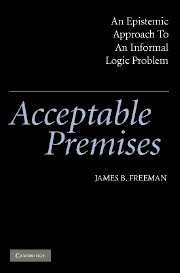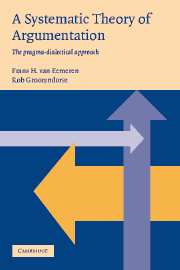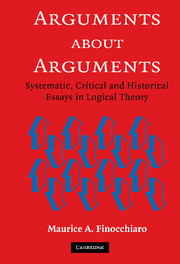Acceptable Premises
When, if ever, is one justified in accepting the premises of an argument? What is the proper criterion of premise acceptability? Can the criterion be theoretically or philosophically justified? This is the first book to provide a comprehensive theory of premise acceptability and it answers the questions above from an epistemological approach that the author calls common sense foundationalism. It will be eagerly sought out not just by specialists in informal logic, critical thinking, and argumentation theory but also by a broader range of philosophers and those teaching rhetoric.
- First book to provide a comprehensive theory of premise acceptability
- Will have crossover appeal in philosophy, rhetoric and communication studies
Reviews & endorsements
'… argumentation theory has long wanted for a detailed and sustained treatment of premise acceptability to supplement and improve various pedagogical assumptions that populate textbooks. And beyond even this, the book is a serious contribution to epistemology that should find a wide philosophical audience from those interested in such matters.' Christopher Tindale, Trent University, Ontario
'… the book is well-written and well-organized. It may be used as a handbook of commonsense foundationalism.' Argumentation
Product details
March 2005Paperback
9780521540605
416 pages
229 × 154 × 26 mm
0.555kg
Available
Table of Contents
- Part I. Acceptability: Dialectical and Epistemological Considerations:
- 1. Why do we need a theory of acceptability?
- 2. Acceptability and presumption
- 3. Factors determining presumption: basic considerations
- 4. Epistemological considerations: acceptability, deontology, internalism, justification
- Part II. Statements, Belief-Generating Mechanisms, and Presumptive Reliability:
- 5. What types of statements are there?
- 6. Necessary statements and a priori intuition
- 7. Descriptions and their belief-generating mechanisms
- 8. Interpretations and their modes of intuition
- 9. Evaluations and the moral faculties
- 10. Taking one's word: the interpersonal belief-generating mechanism
- Part III. Practice and Perspective:
- 11. An outline of the practice of epistemic causistry
- 12. Theoretical considerations: a common sense foundationalism.





